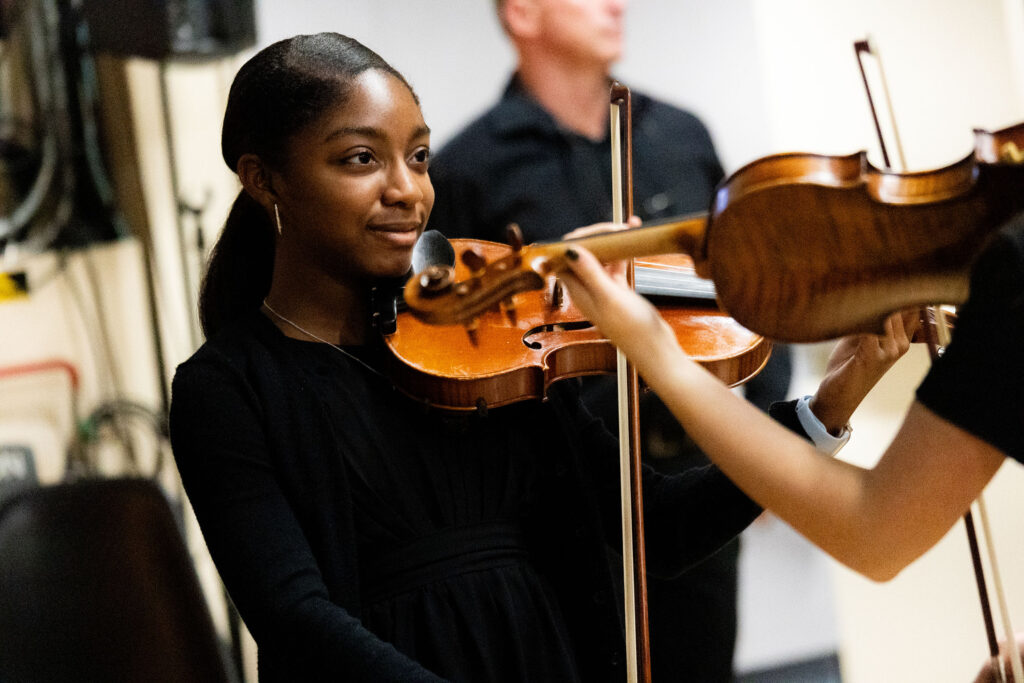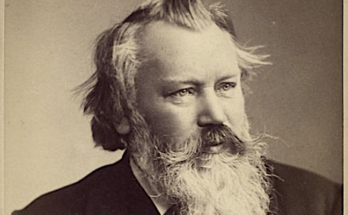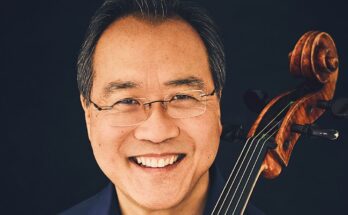There are many paths to a seat in the Atlanta Symphony Orchestra. For ten of the current members, an important point on that path was the Atlanta Symphony Youth Orchestra, celebrating its 50th anniversary this year.
Founded in 1974 as a subsidiary of the ASO (which itself began as a youth ensemble), the ASYO has shaped and elevated the music education of more than 2,500 young musicians, continually passing musical torches from one generation to the next.
Metro Atlanta students in grades 8 through 12 audition for places in the ASYO, just as musicians do for the ASO. Many veteran musicians serve as coaches and mentors for the budding musicians, creating an ecosystem where, in some cases, students and teachers may eventually be peers, playing alongside one another in Symphony Hall.
Ray Kim, an ASYO cellist in 2008 who is now in his first season as an ASO cellist, looks back: “I remember telling my teacher [ASO associate principal cellist] Daniel Laufer, you know it would be my dream to come back to Atlanta and then share the stage with you.
“And that’s what happened. Every week it’s a treat knowing that I used to come here as a kid, and now I get to share the stage with these musicians.
“It’s a whole circle moment.”
A Really Cool Way to Make a Living
The ASYO started in 1974 under the baton of Michael Palmer, who turned over leadership in 1979 to Jere Flint. Flint in turn had amazing longevity and influence on the podium, serving as music director for 35 years, 1979-2014. Subsequent music directors have included Sung Kwak, Joseph Young, Stephen Mulligan, Jerry Hou, and the current AYSO music director, William “Buddy” Langley.
Like Kim, percussionist Michael Jarrett played in the ASYO under Flint and is now in his first season at the ASO.
“I wasn’t too sure what a career in classical music would look like,” Jarrett says. “But then I got the vibe it was a really cool way to make a living. I met with ASO percussionist Charles Settle and got lessons from him. I went to his house and met his wife and remember their house feeling very inviting. I thought, ‘Wow, you can play in an orchestra and have this kind of lifestyle.’”
Jarrett and Kim, both ASYO alumnae from Cobb County in their debut ASO seasons, nevertheless had very different early musical lives. Kim grew up in South Korea, learning both English and cello, but became disenchanted with what he calls the “abusive culture” of formal music instruction there. He quit playing cello, and in 2006 his parents sent him to live with a family in Cobb County and attend the private Dominion Christian School to immerse himself in American culture.
Playing With the Big League
Jarrett, meanwhile, got his first drum set when he was about 10. The first song he learned was that gateway drug for young drummers, Queen’s “We Will Rock You,” but he was soon learning jazz drumming and other styles.
He played snare drum in the Pope High School marching band and auditioned for the ASYO his junior year but was not selected. He auditioned again in his senior year in 2009 and joined the ASYO.
“It was like being in the same stadium as the big-league players,” he says. “In high school in band, we typically don’t get to play orchestral works. Just to be exposed to the big orchestral repertoire like Tchaikovsky’s Fourth Symphony was really impactful.”
Jarrett, a two-time winner of the Atlanta Symphony Modern Snare Drum Competition, earned degrees from the Cleveland Institute of Music and the Manhattan School of Music and was a percussionist with the Vancouver Symphony Orchestra before successfully auditioning for the ASO.
Part of the Greater Good
Kim’s path eventually found him rediscovering his love for the cello in his new life in Marietta, and he auditioned for the ASYO his senior year.
“It was my first time rehearsing weekly with people who shared a common goal,” he says. “You could feel that everyone was there because they loved playing music, and it made me very happy.”
Kim went on to study at the Cleveland Institute of Music, the Eastman School of Music, and the University of Texas, where he earned a Doctor of Musical Arts degree. As a South Korean citizen he was required to serve in the South Korean Army in 2020, but his musical ability served him well and he wound up in the Army band, where he learned trombone.
The ASYO teaches more than technical skills on specific instruments, Kim says. “I learned that you’re not here [just] to play your part. You’re here to make music together as a group. And if you don’t know your part then you’re not only not helping yourself but you’re also not helping your group.
“You are responsible for your part of the greater good.”
Photos courtesy of Atlanta Symphony Orchestra





